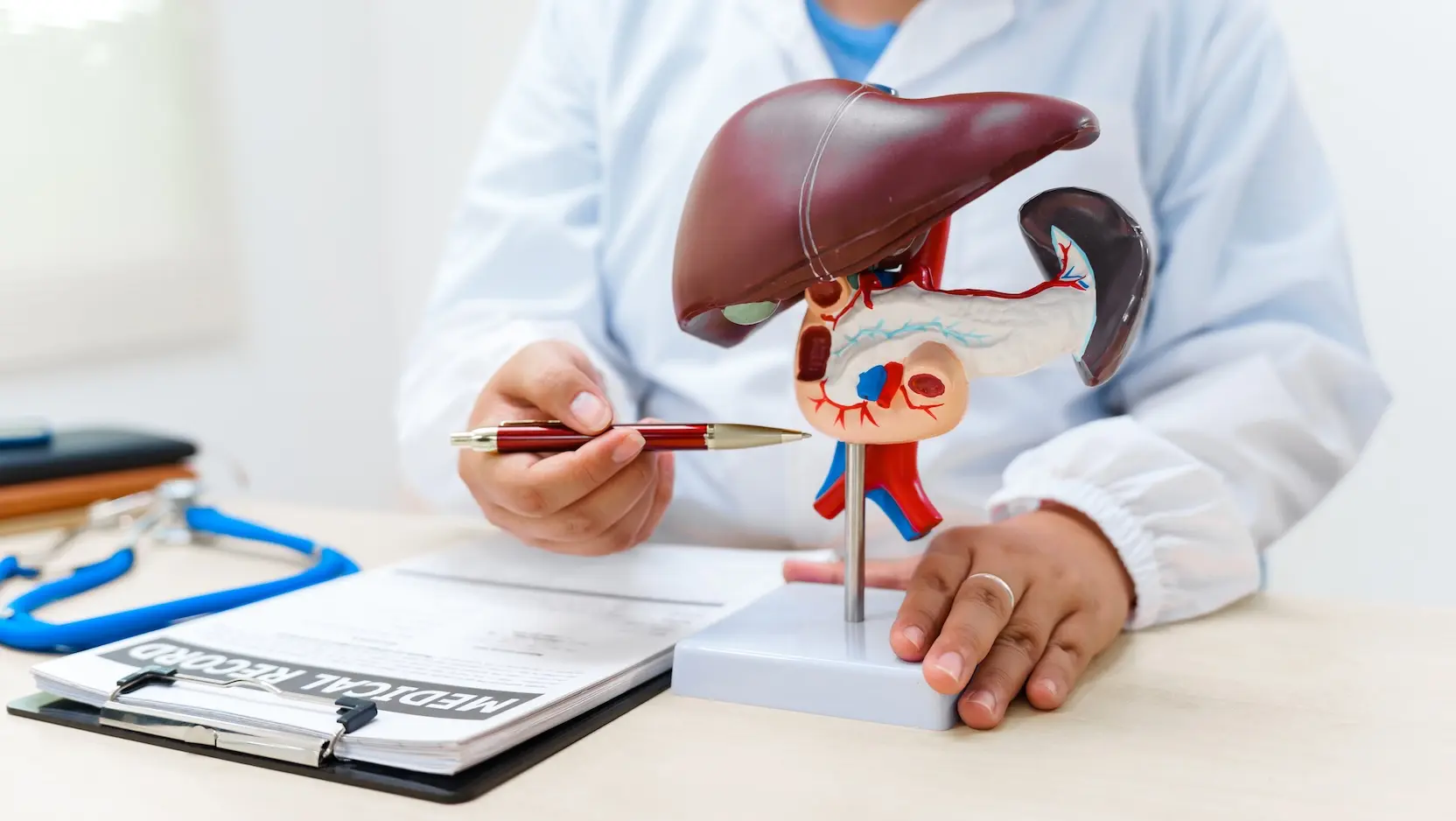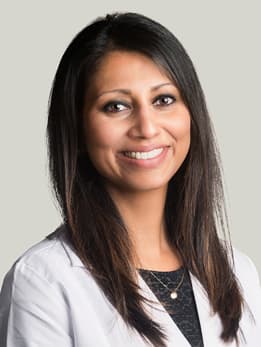How to lower your risk of liver cancer

In honor of October’s Liver Cancer Awareness Month, we asked Anjana Pillai, MD, Professor of Medicine and Surgery and Director of the UChicago Medicine Liver Tumor Program, to talk about liver cancer, what it is, who’s at risk and what you can do to lower your chances of getting it.
Q: What are the different forms of liver cancer and how common are they?
Most primary liver cancers are either hepatocellular carcinoma (HCC) or bile duct cancers, known as cholangiocarcinoma (CCA). HCC is more common of the two. The vast majority of HCC happens in the background of cirrhosis, a condition in which the liver is scarred and permanently damaged over time. In the past, the biggest risk factor for HCC was hepatitis B and C. Now, however, alcohol-associated cirrhosis and metabolic dysfunction-associated steatotic liver disease (MASLD) (formerly known as fatty liver disease) are the main risk factors for HCC. Most patients with CCA have no known risk factors. In fact, only about 30% have traditional risk factors such as chronic liver disease, including primary sclerosing cholangitis (PSC). The most recent data from the National Cancer Institute shows that intrahepatic cholangiocarcinoma (iCCA) is on the rise, especially in women.
Q: Who is most at risk for developing liver cancer?
In the case of HCC, the vast majority of patients have advanced liver disease or cirrhosis. Viral hepatitis, alcohol-related cirrhosis, MASLD or cirrhosis from any cause are all risk factors. Increased use of alcohol, central obesity and insulin resistance are all real concerns in both cancers.
Q: What screening methods exist to catch liver cancer early?
Regarding HCC screening, for patients with cirrhosis or chronic hepatitis B, there are guidelines for surveillance, which include an ultrasound of the abdomen and a tumor marker (AFP) every six months. In patients with PSC and advanced liver disease, there are also guidelines for surveillance. Unfortunately, most patients with CCA do not have traditional risk factors and are diagnosed with cancer incidentally or when they are symptomatic.
Q: How can a person lower their risk for liver cancer?
- Limit alcohol: No more than one drink a day for women or two for men. Avoid binge drinking. In patients with underlying liver disease, no amount of alcohol use is safe.
- Maintain a healthy weight: Obesity and insulin resistance/diabetes both raise your risk.
- Eat well: A balanced diet, such as the Mediterranean diet, supports liver health.
- Exercise regularly: Aim for 150 minutes of moderate-intensity activity every week.
- Enjoy coffee: Coffee has been shown to help lower liver cancer risk.
Q: If someone gets liver cancer, what can they expect for treatment?
Treatment will depend on factors such as size and number of tumors, whether or not the cancer has spread into blood vessels or other organs, the patient’s liver function and how active they are. Treatment can include surgical resection, liver transplantation and certain locoregional therapies (i.e. treatment directed to the lesion in the liver). In patients with more advanced cancer, most systemic therapy options now involve combination medications, including immunotherapies where the body’s own immune system can be used against cancer.
Q: What is UChicago Medicine’s approach to treating liver cancer?
At UChicago Medicine, we are very proud of our integrated, multidisciplinary approach to liver cancer that has been a cornerstone of our practice since 2016. Our patients are seen in a single area where multiple specialists (surgery, hepatology, oncology, interventional radiology, etc.) involved in a patient's care will be available for consultation without the patients having to make separate appointments over the course of days or weeks. We review all cases at a multidisciplinary liver tumor board where experts in liver cancer will review the patient's history and images to make an individualized plan for each patient. We also have a nurse navigator who helps patients schedule their care and navigate treatment between specialists.
Liver Cancer Treatment
The UChicago Medicine Liver Tumor Program brings together specialists from our cancer and digestive disease programs to provide care for patients with primary liver cancer as well as bile duct cancer and benign tumors of the liver.
Learn more about liver cancer care
Anjana Pillai, MD
Anjana Pillai, MD, is a board-certified gastroenterologist and transplant hepatologist who specializes in the management of chronic liver diseases. Dr. Pillai is the medical director of the multidisciplinary liver tumor program, which encompasses multiple specialists with expertise in benign and malignant tumors of the liver.
See Dr. Pillai's profile